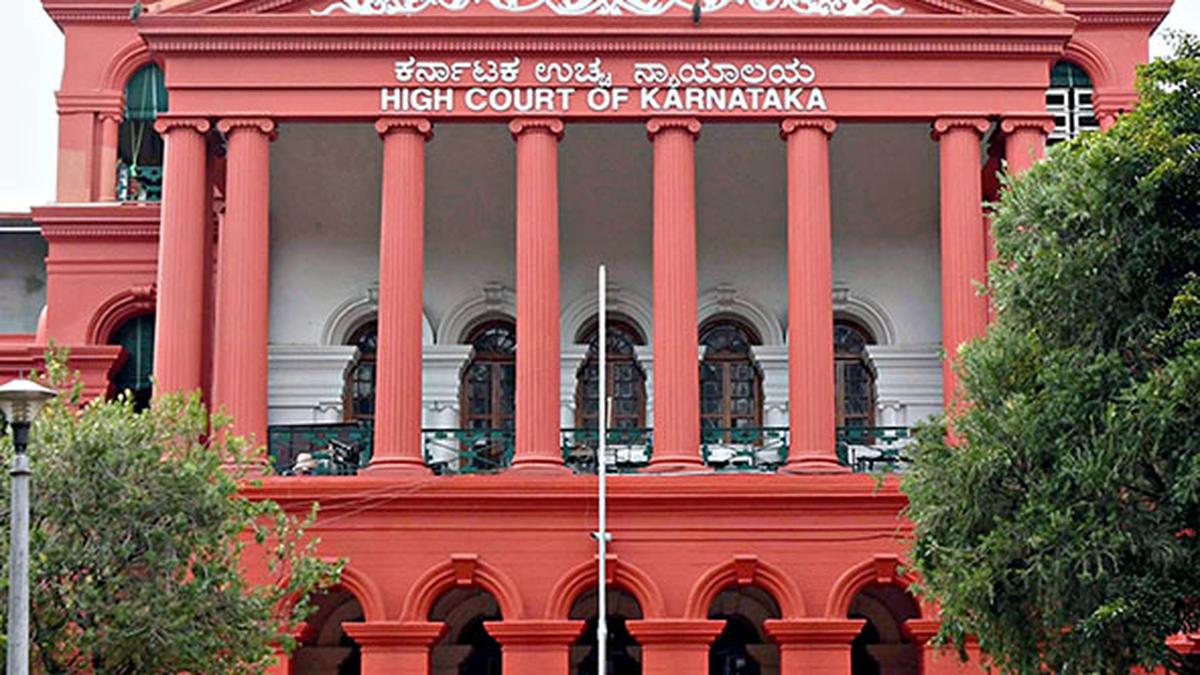A view of High Court of Karnataka.
| Photo Credit: File photo
The High Court of Karnataka on Monday ordered issue of notice to the State government on a PIL petition seeking direction to the authorities to regulate the practice of ‘Asthi Visarjan’ (immersion of ashes) and its allied rituals on the banks of the Cauvery in Srirangapatna by specifying designated spots for such rituals.
A Division Bench comprising Chief Justice N.V. Anjaria and Justice K.V. Aravind passed the order while hearing the petition filed by a group of six advocates led by Kushal Kumar Koushik of Bengaluru.
Among prayers to free the river from being polluted in Srirangapatna, the petitioners had also sought direction from the court to recognise the Cauvery as a ‘juristic person’ taking precedence from the High Courts of Uttarakhand, which has declared rivers Ganga and Yamuna and their tributaries as a ‘juristic person’.
The petitioners also sought direction to the authorities to effectively enforce the ban imposed in 2011 on ‘Asthi Visarjan’ and its allied practices at Gosai Ghat and Nimishamba temple areas, and to create a mechanism to prevent people from throwing flowers, plastic bags and clothes and take action against those polluting the river in this manner at various locations in and around Paschimavahini and Triveni Sangama.
Pointing out that the petitioners “did not intend to meddle with a sensitive issue such as ‘Asthi Visarjan’ nor were they seeking stopping of the practice, being aware of its importance to the Hindu religion,” it was stated that they were concerned about the fact that along with ‘Asthi Visarjan’, material like flowers, plastic, and clothes of deceased persons were being discarded into the river.
However, the petitioners pointed out that human ash is a mix of harmful chemical compounds and has the potential to change the composition of river water as the concept of treating human ash before it is released into the river is not practiced in India.
The petitioners also sought a direction from the court to ban local land owners from using their private properties on the banks of the river for religious practices associated with ‘Asthi Visarjan’ or showing penance to the dead aimed at deriving financial profit.






